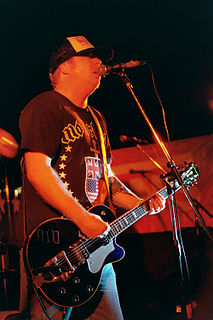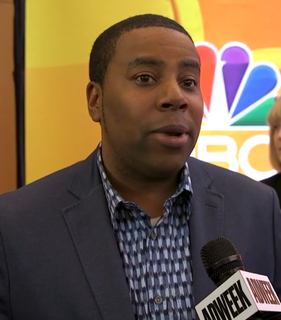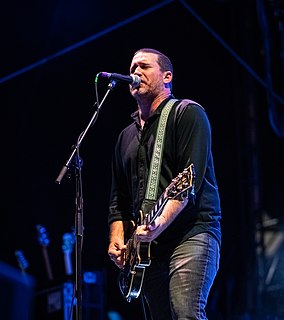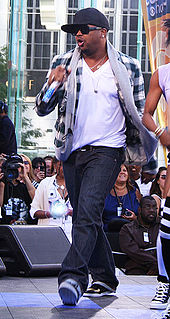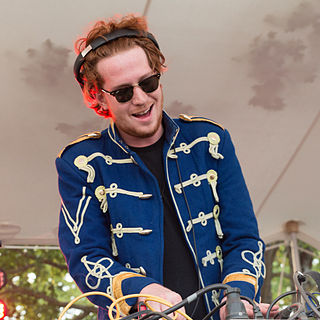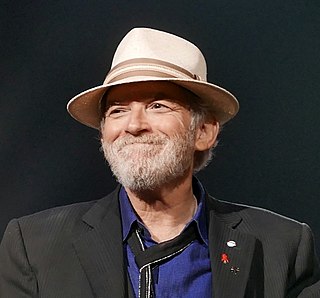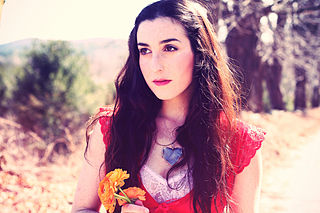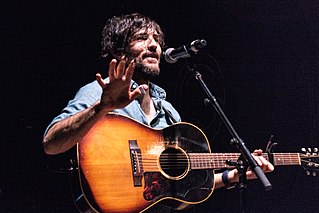A Quote by Dave Smalley
The experience of playing music at a young age really opens up one's mind to different melody in life itself, literally - like, when you've even played a recorder, or whatever, it becomes a lot easier to hear the beauty in a bird's song, or the quiet tune in a gentle rustle of the wind.
Related Quotes
Music is very transporting. I'll hear a song for the first time and I rarely listen to the lyrics. I picture that song playing as a soundtrack to a movie, or even just in the background of someone's life. This all sounds weird, but I have an active imagination, and music opens the floodgates of that area of my brain.
Music and time have such an interesting relationship. Music makes time fall away like almost nothing else. You hear a song from another moment of your life and it really is like you're still there. That's why the music of our youth ends up being particularly powerful. The coming of age music that you grab a hold of as the symbol or the expression of your independence and hopes for the future and anger and rebellion or whatever it is you're feeling is so powerful for the rest of your life when you hear it.
I was lucky enough to grow up in an era when radio was less formatted. It was really special. You could hear a jazz song then a pop song then a show tune then some jazz. Basically, whatever the DJ felt like playing, he would play. He was educating you and exposing you to things you would never hear otherwise.
It's always a blast playing the new stuff. But I feel like songs, in a way, are never finished. You get to a point where you're comfortable enough to put a stamp on it and send it out there, but even after recording it, when you're playing it live, you hear different harmonies, you hear different notes, you hear different tempos or peaks and valleys in the song.
I think the emotion that song carries makes it good. Because you have to produce around something - an emotional attachment and a feeling. The melody itself has a feeling in it. The keys, the tones, frequency, sonics, all of those have feelings in it. Like, it's the ghost within, the music itself. That's what makes the song even have a possibility of being great. The emotional connection. Because if you don't have that, I don't think you really have a song.
There are choirs singing in your head. If you listen, you will hear the music. It is the song of angels. Pay no attention to the sounds of the world. They are just noises, and even when added up all together they have no value, make no sense. Strain to hear the song of angels. Listen to the melody within your soul.
It's so different going in the studio and singing your own music and you don't really think about making sure that the message of the song or the idea behind the song comes across to people. Because it's in your head, it's in your heart, whatever, but it's... different when you're playing a character and you're singing as the character. There's just a lot more involved in that, I guess.
For the first records I really never thought about anything other than the song itself. I thought that this was what the job of a songwriter was. I was really approaching music from a very different standpoint. To me when I was younger the song was just the melody. I think as I've gotten older and have been recording myself I've become aware of just how many layers can exist within a song besides just the main vocal.
I had a dream that Louis Armstrong was playing the 'Swept Away' melody. I have no idea where it came from. But Louis Armstrong was playing it and singing the song to me. I woke up-it's a borrowed melody no doubt-and wrote it down. If I hear a song and I choose not to put it down, that's me neglecting to accept that song. I think there's a very spiritual and godly-type ting that happens, and it happens to way more people than we know. It's just that very few of us choose to engage it.
All songs have those X factors. I couldn't even explain or describe what will grab me about them but it's all music that I'm usually listening to. I'm always looking there to hear new music and see what's going on so that's usually when I'll hear something and be like "Wow, that melody is really crazy.
